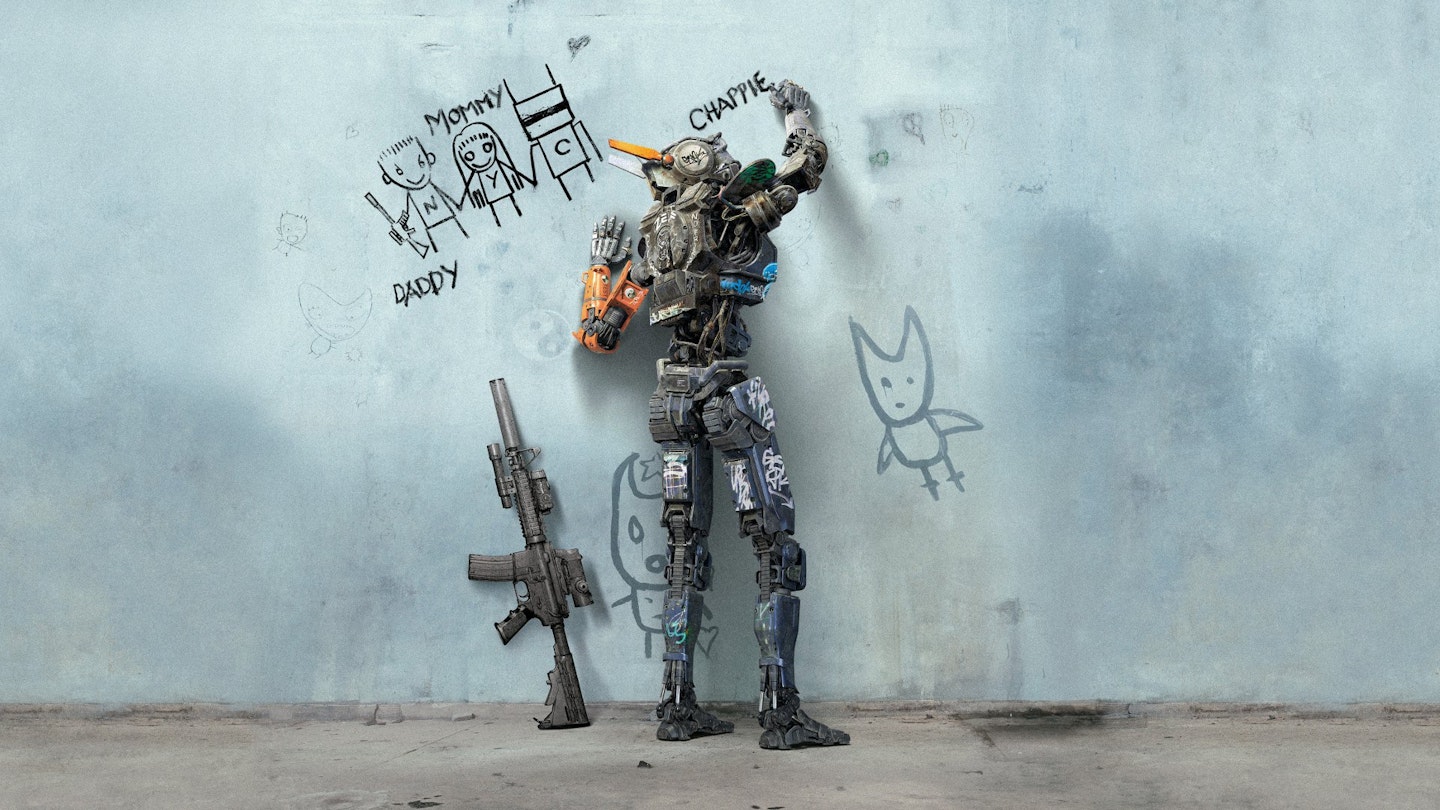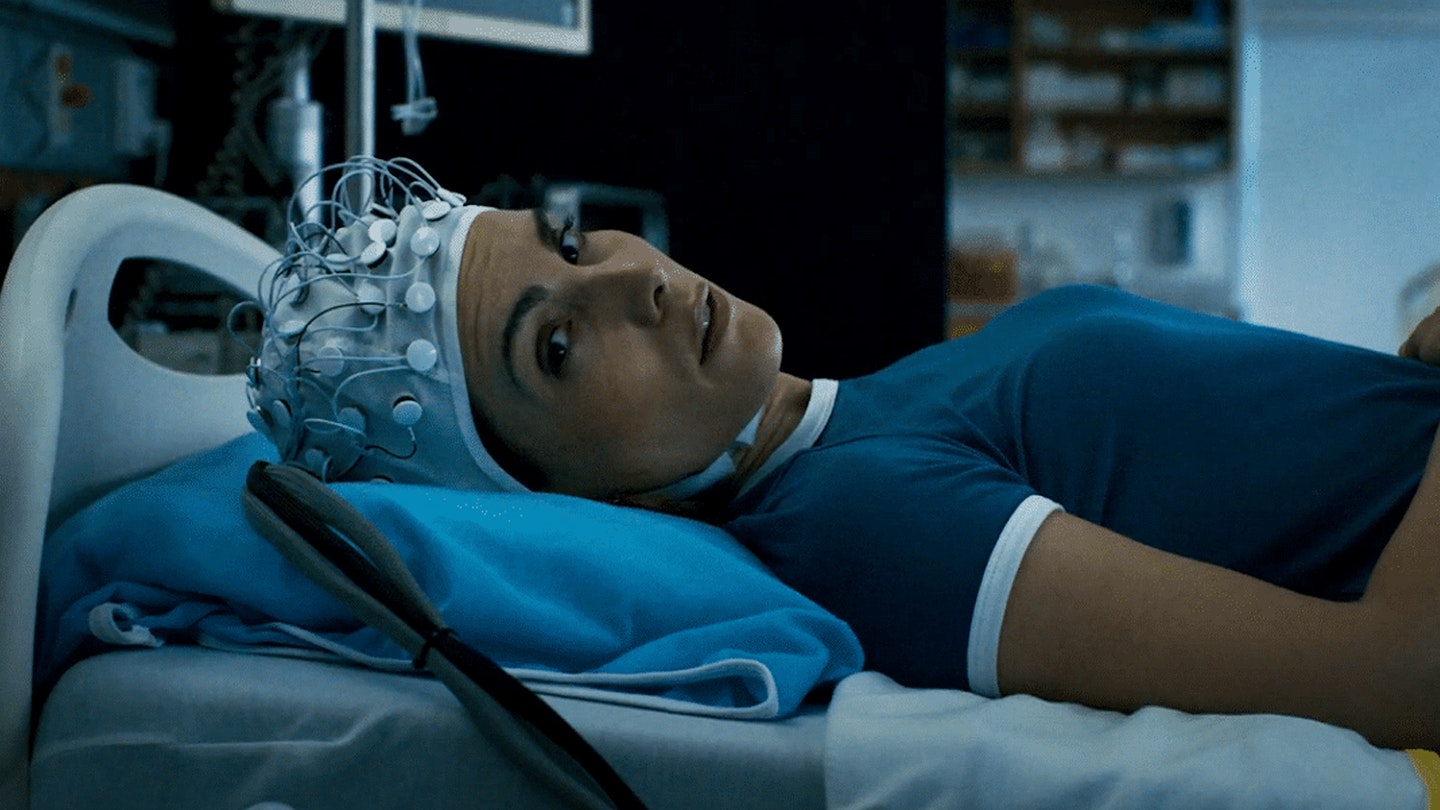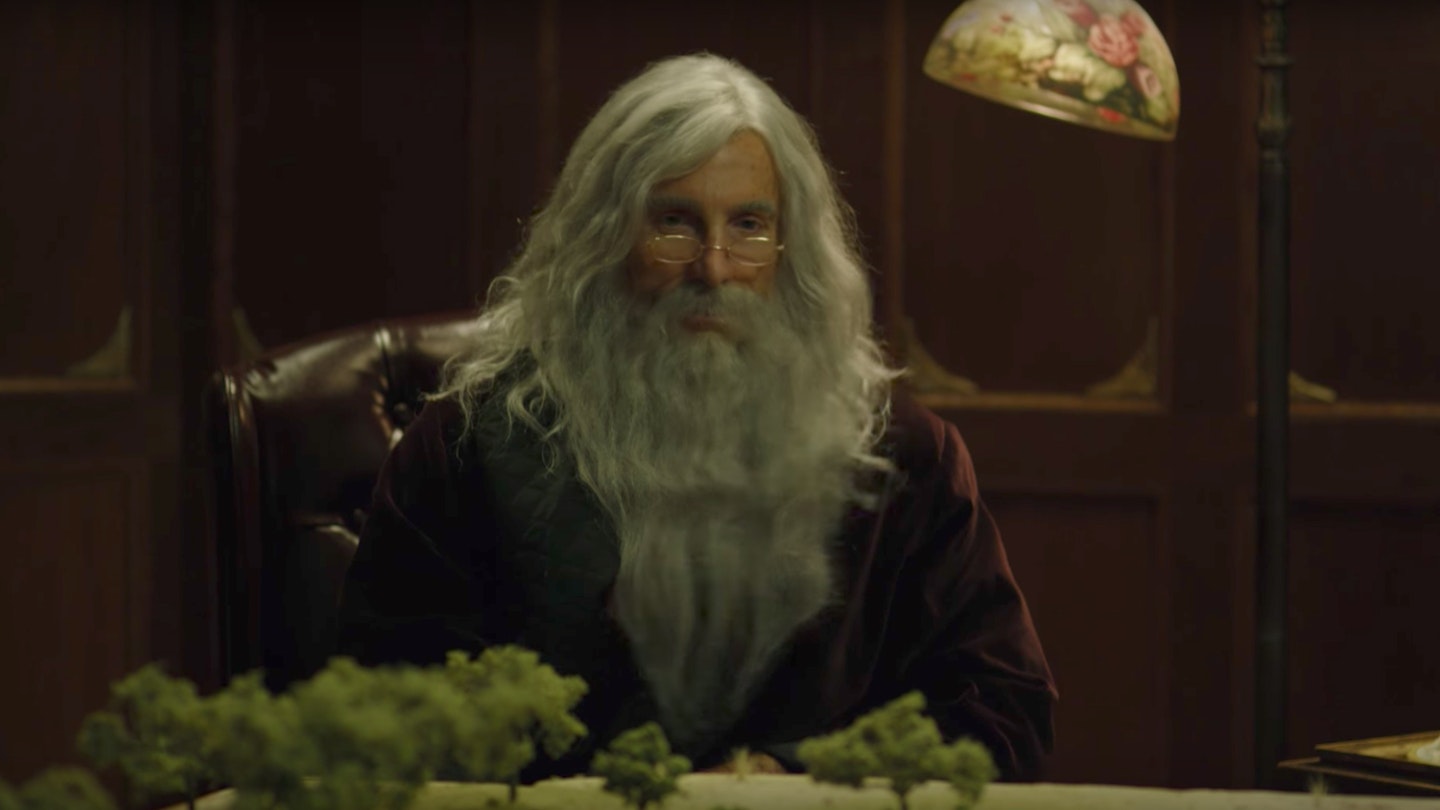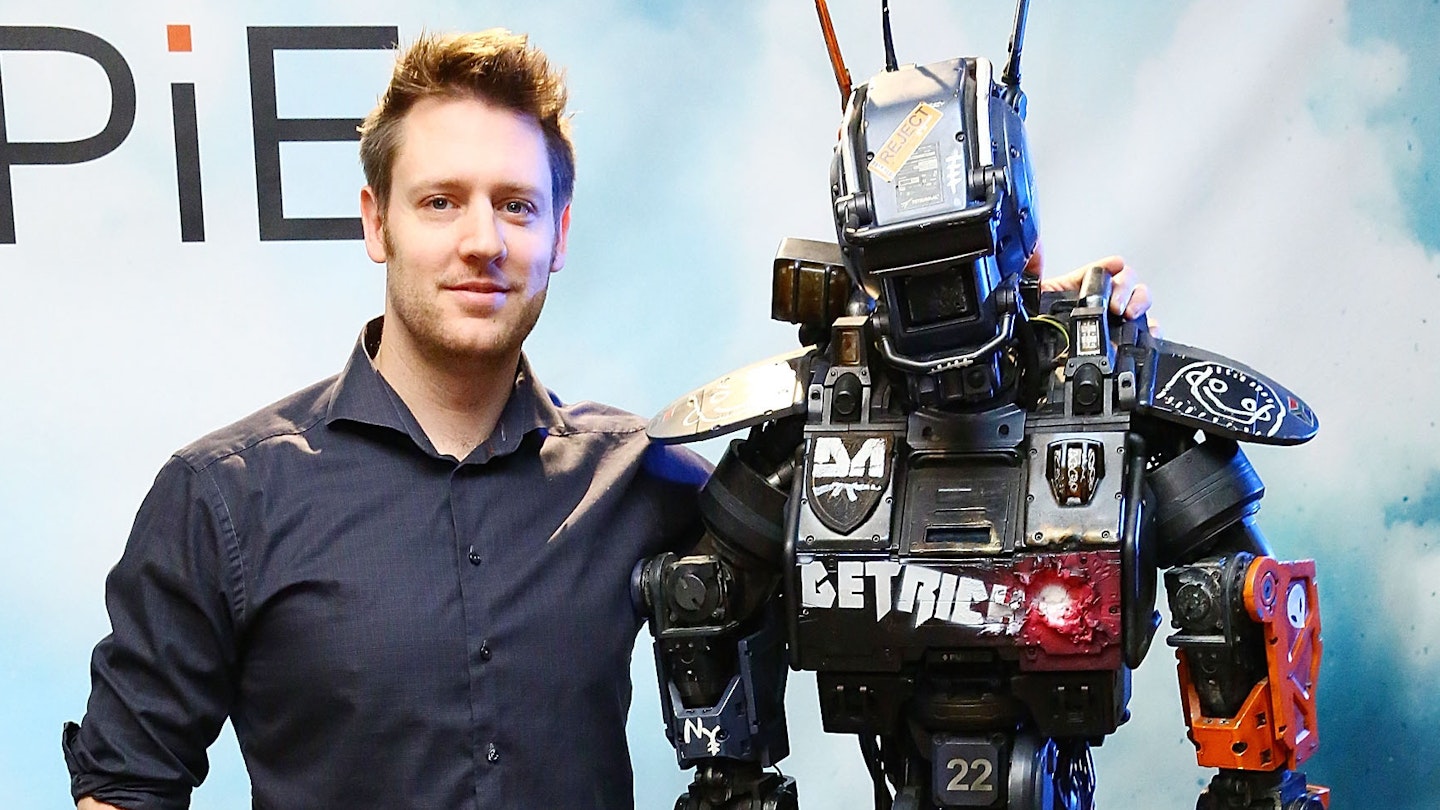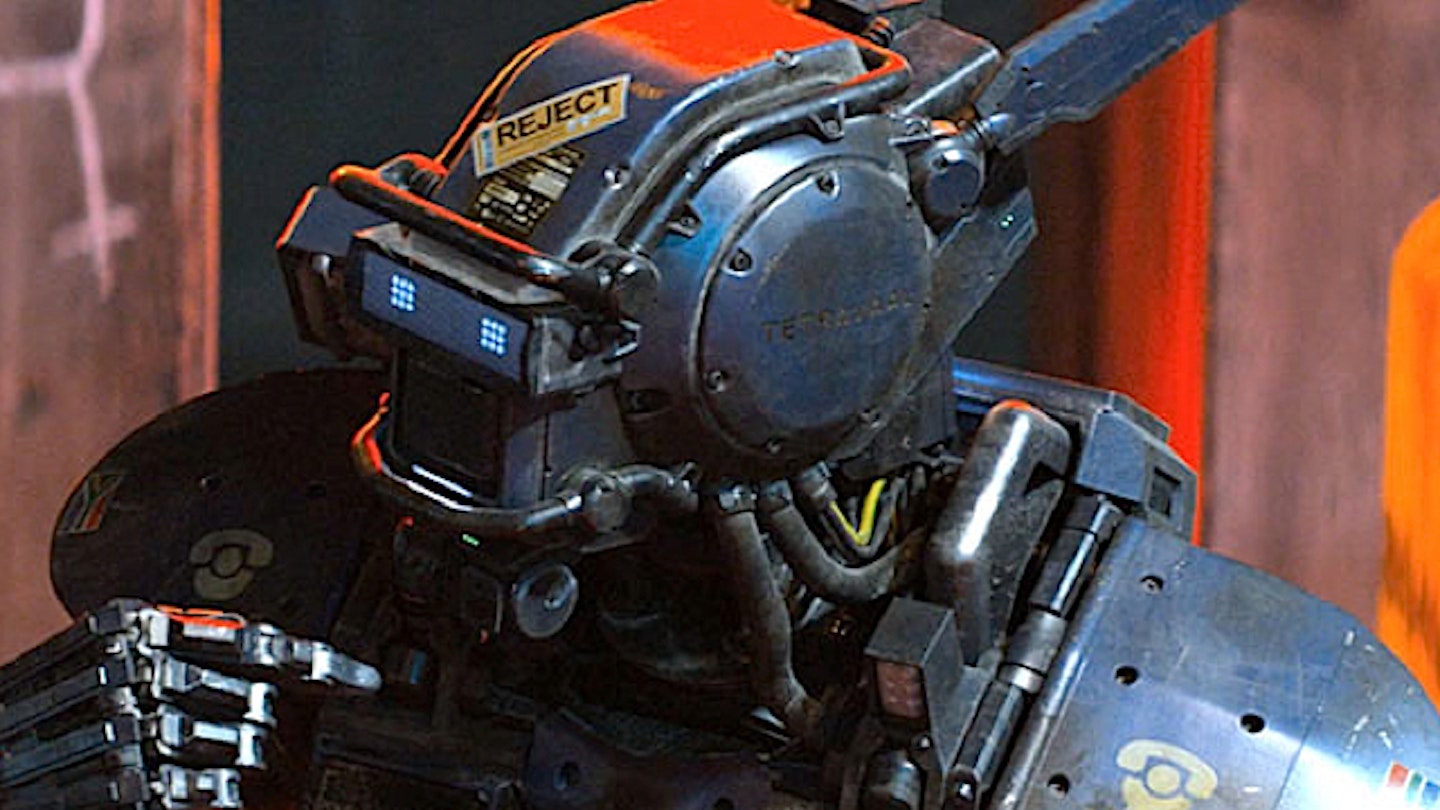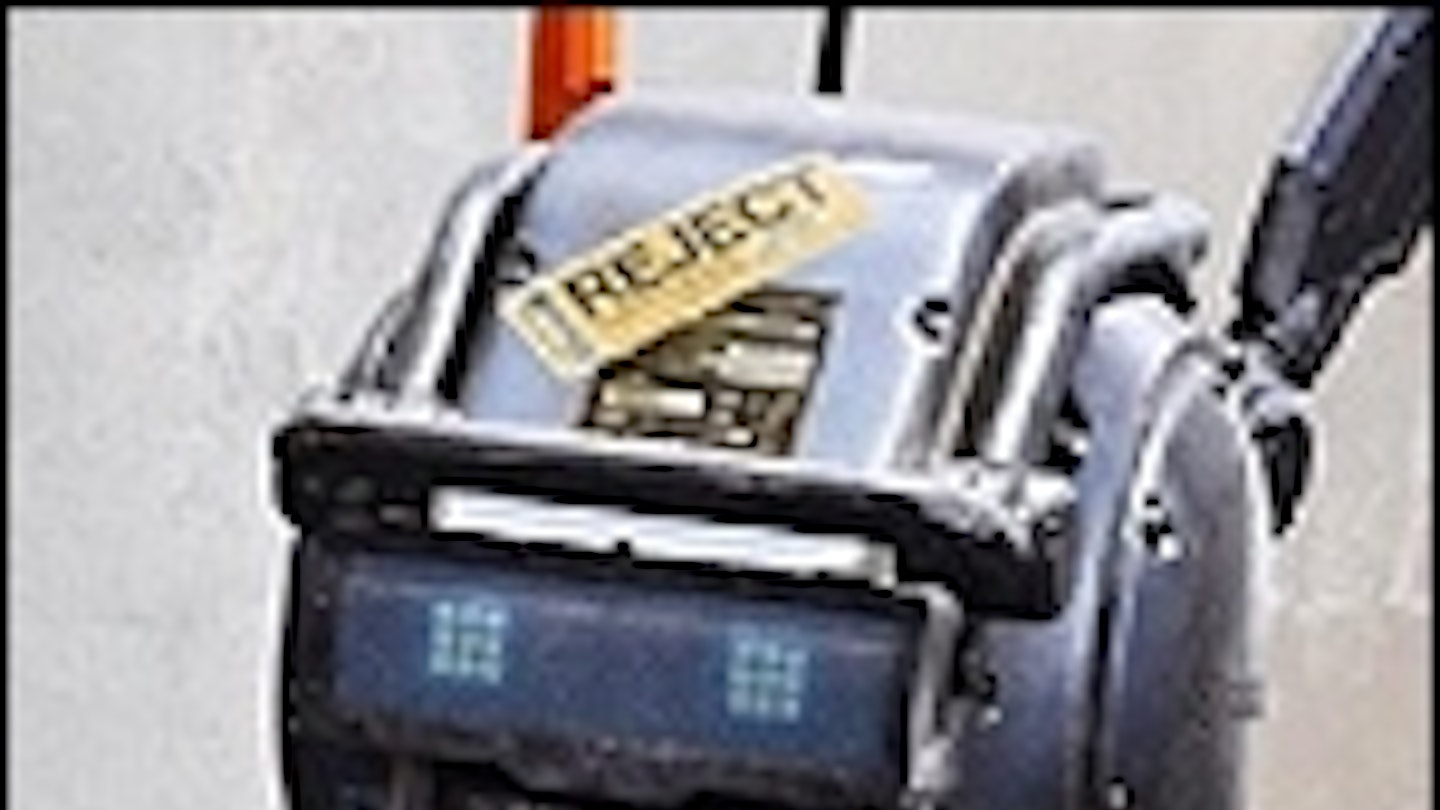The Difficult Second Album is such an ingrained concept that it’s sometimes easy to forget that it automatically leads to That Difficult Third Album. Which, in some ways, is even more difficult than the difficult second album. It’s the one that proves if you were a one-off or in it for the long haul. And that’s the situation Neill Blomkamp finds himself in with Chappie - after the huge critical and commercial success of his debut, District 9, the South African-Canadian director bumped back to earth with the misfiring Elysium. So would his third film prove Blomkamp a ‘visionary genius’, as many had rushed to label him after District 9, or had he already used up his box of tricks? The answer, frustratingly, is still hazy, and probably won’t fully be resolved until after his Alien film, but for now it seems to be a bit of both.
It perhaps doesn’t help matters that Chappie feels much more like a deliberate shift back to the look and feel of District 9, thus inviting immediate and largely unfavourable comparisons. Like that film, this starts almost as a documentary, with newsreel footage setting up the premise: it’s the near-future, Johannesburg is in turmoil, and robot police have been deployed, successfully, to keep the real red rain off the streets. And then, like that film, that approach is dropped almost immediately in favour of simple narrative. Then, like District 9, it becomes a story about the transformation of an innocent, with the odd hardcore, ultra-violent action scene thrown in for good measure.
As with District 9, that innocent is played by Blomkamp’s Bruce Campbell, Sharlto Copley, here donning the mo-cap onesie. However, where his Wikus van der Merwe was endearing, funny and ultimately tragic as he began his mutation into a fookin’ prawn, the constantly chirpy Chappie is harder to spend time with. Some have already drawn harsh comparisons to Jar Jar Binks - don’t worry, it’s not that bad. But as Chappie starts life with the mind and mannerisms of a child, his relentless line of questioning quickly wears thin. And even though the character is a triumph of visual effects, Copley’s characterisation never goes far beyond the obvious. This Johnny 5 never really feels fully alive.
Along with the idea of what it is to be human, and the concept of consciousness as something that can be built and uploaded/downloaded as and when necessary (echoing quite a few of this year’s big movies, from Ex Machina to Avengers: Age Of Ultron), Blomkamp also tackles the idea of nature vs nurture, and asking whether being a good person is something that is inherent, or can be learned, like any skill. To do this, Blomkamp places Chappie at the centre of a battle for what some might consider his soul. On one side, his peaceable, likeable creator, Deon (Patel), who wants Chappie to learn about art and nurture his creativity. On the other, the South African rap group, Die Antwoord.
Effectively playing a near-future, down-on-their-luck version of themselves as hardened criminals, who see Chappie as their key to pulling off a major heist, the duo - Ninja and Yo-Landi Visser - start teaching Chappie how to be a criminal, giving him gangster bling, showing him how to hijack cars (in the film’s funniest sequence), and imparting swear words he can’t quite get his head around (“Fuck mother” is his catchphrase). It’s a very clear family dynamic, with Deon as the benign father, Yo-Landi as the loving mother, and Ninja as the boozy reprobate of an uncle, determined to drag his nephew off the rails. The problem is that Die Antwood - Ninja in particular - are vile and incredibly stupid. At one point Ninja, who has pinned all his hopes on Chappie, abandons him in the Joburg badlands as a test of his manhood, without considering for one minute that he might not make it back.
Of course, not all movie characters have to be likeable, or relatable. Just look at Travis Bickle for proof of concept. But they at least have to be interesting, and Die Antwood fail in that department. Neither are their acting skills up to snuff, so when they have to do the emotional heavy lifting in the third act, it doesn’t have the necessary heft. Simply put, they're not the answer.
Still, it’s refreshing in this cookie-cutter age to see a director who has the guts to make such risky decisions, and there are more than enough enjoyable and impactful moments when the Blomkamp of District 9 reveals himself. It’s much more fun than the murky Elysium, for example, from little visual flourishes (Die Antwoord’s heavy-duty firearms are candy-coloured) to big, bruising action set pieces, including an impressive third-act showdown that might make you wish Blomkamp had directed the RoboCop remake. And then there’s Jackman, clearly relishing playing against type as the film’s main villain, a bemulleted, shorts-wearing Aussie alpha male who sees Chappie as an affront to God. When Jackman’s on screen, pulling a gun in the middle of a crowded office or bellowing Aussie swear words while blowing people away, the film feels a little less robotic, a little more human.
